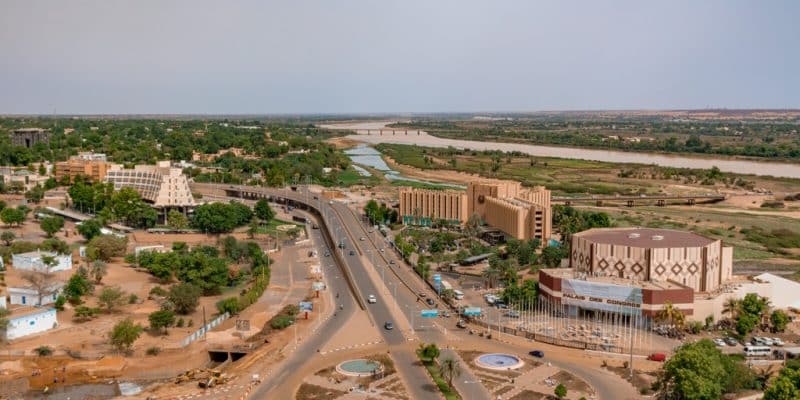All eyes are currently on Niger following the coup d'état that toppled President Mohamed Bazoum. Beyond the incomprehension aroused by the decision of the Economic Community of West African States (ECOWAS) to use force to restore the deposed president to power, this coup de force brings back into the spotlight the very curious question of Niger's energy dependence.
Sixty-five years after its independence, and despite the diversity of its energy resources, Niger is still unable to produce the electricity its population needs. The Sahel country with a population of over 25 million is 75% dependent on its neighbour, Nigeria, from which it imported 1,450 gigawatt hours (GWh) in 2020, according to the French Institute of International Relations (IFRI). But following the coup that toppled President Mohamed Bazoum on 26 July 2023, Nigeria retaliated by cutting off its power.
Beyond the stupefaction caused by the willingness of the Economic Community of West African States (ECOWAS) to intervene militarily in an attempt to restore the deposed president’s power, this coup was a brutal reminder of Niger’s energy situation. The West African country has all the resources to become a real energy power in the region.
The thorny issue of uranium
Niger enjoys almost 300 days of sunshine a year. Solar radiation varies between 5 and 7 kWh/m2/day and is well distributed across the country, according to the Turkish Council for Foreign Economic Relations (DEİK). According to the DEİK, direct radiation is high, accounting for more than 65% of total sunshine. Hydroelectric potential is estimated at around 280.5 MW, including 130 MW at Kandadji, 122.5 MW at Gambou on the River Niger and 26 MW at Dyondyonga.
Read also- NIGER: Mohamed Bazoum and Josep Borrell inaugurate the Gorou Banda solar power plant
There is also uranium, a strategic mineral for the nuclear industry. It has been mined for 50 years by Orano (formerly Areva), but also by the Chinese National Nuclear Company (CNNC), which has been working in partnership with the Nigerien government to mine uranium in the Azelik region since 2010. But for Alain Antil, Director of Ifri’s Sub-Saharan Africa Centre, Niger “is no longer the strategic partner of Paris that it may have been in the 1960s and 70s”, contrary to what is widely reported on social networks about the dependence of the French nuclear industry on Niger. In his view, Niger is France’s third-largest supplier of uranium, behind Kazakhstan and Canada.
Lack of a development strategy
In recent years, the country has also embarked on oil production, with concessions granted to the China National Petroleum Corporation (CNPC), notably at Agadem in north-eastern Niger. The Sahelian country currently has an installed electrical capacity of 272 MW, of which 266 MW will be fossil-fired by 2019, according to the United Nations Development Programme (UNDP). For some observers, this situation is due to the absence of an overall development strategy, coupled with the insecurity that is becoming widespread in the Sahel despite the presence of foreign troops for several years.
But there is still hope, as a few weeks ago Niger installed its largest photovoltaic solar power plant. With a capacity of 30 MWp, the Gorou Banda solar park is located 12 km from the capital Niamey. To help develop the country’s installed capacity, the International Finance Corporation (IFC) launched its “Scaling Solar” programme in Niger in June 2021, with the aim of producing 50 MW under a public-private partnership (PPP). Since then, the project has seen no major progress, despite a call for tenders launched in September 2021. Meanwhile, 81% of Niger’s population still has no access to electricity, according to the World Bank’s 2020 report.
Jean Marie Takouleu






